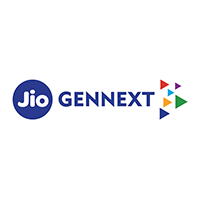
JioGenNext
View Brand PublisherJioGenNext and National Payments Corporation of India is collaborating to support innovative fintech startups with Basecamp

The Indian fintech market is expected to be worth around $8 billion by 2020, according to a NASSCOM report. So far, the space has seen a number of innovations which aim to ease the lives of individuals as well the financial services ecosystem as a whole. Nevertheless, getting traction and funding remains a challenge for some fintech startups because they lack proper understanding required to build and run a valuable business.
This is where JioGenNext accelerator plays a significant role. Over the last few years, the programme has partnered with several startups to help them understand their business better, enabling them to be successful, as part of Basecamp, a four-week-long mentoring programme for early-stage startups. Startups get mentored by industry experts, thought leaders, the leadership team from Reliance, and other change-making organisations.
Collaboration with NPCI to benefit fintech startups
This batch of Basecamp promises to be even more fulfilling. JioGenNext is collaborating with the National Payments Corporation of India (NPCI) to give a helping hand to startups and teams interested in building solutions for the Indian fintech ecosystem. The objective is to bring to light new use cases and merchant/product integration using NPCI offerings such as UPI. NPCI is also collaborating with banks to help fintech startups.
This batch of Basecamp will have two themes:
UPI 2.0
The NPCI has launched the UPI 2.0. This version has given more facilities to merchants and the business community.
- Linking of overdraft account: Customers can link their overdraft account to UPI, in addition to current and savings accounts. All benefits associated with overdraft account shall be made available to the users and customers will be able to transact instantly. UPI 2.0 will serve as an additional digital channel to access the overdraft account.
- One-time mandate: UPI mandate could be used in a situation where money is to be transferred later by providing commitment at present. UPI 2.0 mandates are made with one-time block functionality for transactions. It enables customers to pre-authorise a transaction and pay at a later date.
- Invoice in the inbox: This feature is designed for customers to help check invoices sent by merchants prior to making the payment. It enables customers to view and verify the credentials and check whether it has come from the right merchant or not. Customers can pay after verifying the amount and other important details mentioned in the invoice.
- Signed intent and QR: This feature is designed for customers to verify the authenticity of merchants while scanning QR or quick response code. It provides the user with information to ascertain whether the merchant is a verified UPI merchant or not, providing additional security.
National Common Mobility Card (NCMC)
NCMC was developed by NPCI along with the Ministry of Housing and Urban Affairs (MoHUA) with a vision to create ‘One Card for all Payments’. The specifications include a dual interface (contact and contactless) EMV card-based solution that is interoperable based on open standards. The aim is to enable low value payments using regular debit or credit cards for various segments e.g. transit, smart cities, toll, parking and other low value merchant payments, in addition to day-to-day retail payments.
NCMC has storage capabilities that support not only offline contactless payments but also non-financial applications like passes and government applications such as social security, identity/access card, etc. In future, these cards will be available in various other form factors, including wearables.
Some typical use cases for NCMC include:
- Mobile/PoS based automatic fare collection application that accepts NCMC on tap
- Light Merchant application to make use of storage area for non-financial use cases
- Security evaluation tool with cloud access to certify new form factors (Wearables)
- Light applications to run on new form factors supporting contactless only transactions
Participate and see your ideas come to life
The UPI 2.0/ NCMC Basecamp is looking to redefine the future payment solutions landscape in India. JioGenNext is looking for breakthrough ideas from talented, creative and passionate developers.
So, what are you waiting for? Go ahead and apply for JioGenNext Basecamp today.







